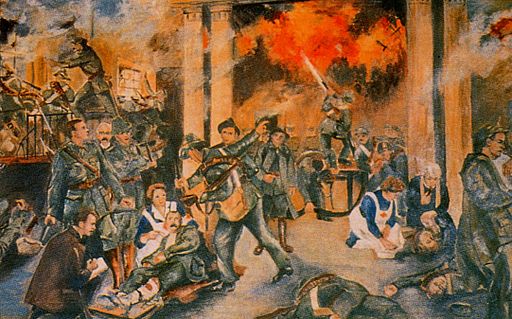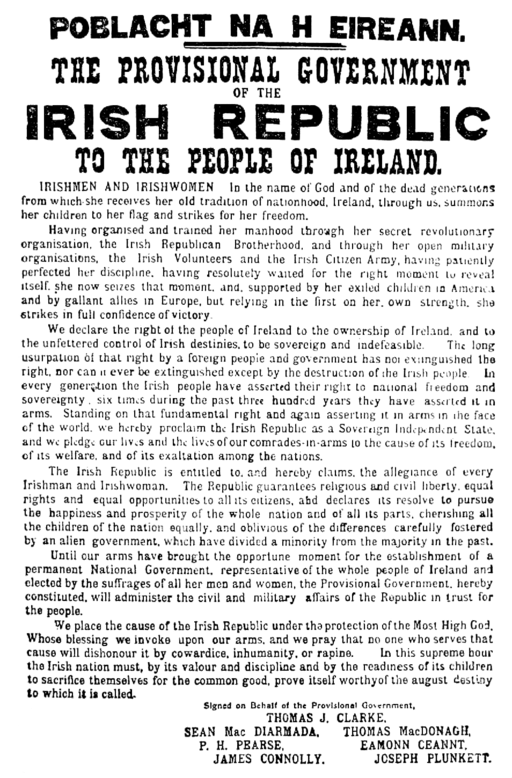A Poets' Rebellion?
Often described and occasionally dismissed as a poets' rebellion, the Easter Rising of 1916 was, nevertheless, an event that had far-reaching significance. We are reproducing here, an article from Dublin Made Me website, which attempts to put it in a historical context while also alluding to the literary impact of those events that took place 100 years ago today.
On this day in 1916, precisely 100 years ago, an armed insurrection broke out on the streets of Dublin, heralding the start of what was originally dubbed the Sinn Féin Rebellion but would come to be known as the Easter Rising.
A week of heavy fighting ensued. The rising was eventually quashed by the superior military power of British armed forces, although strategic failures on the part of the rebels and, indeed, bad luck also played a part in ensuring the outcome. Nevertheless, while often dismissed as a military failure (or even a 'heroic failure'), the fact remains that, aside from the General Post Office, which served as the Rising's headquarters, no other rebel position fell until the order to surrender was received. Thus, while the order for unconditional surrender was issued on Saturday, 29 April (by Padraig Pearse, co-signed by James Connolly) fighting continued until the following day, as it took time for the surrender order to filter through to certain rebel strongholds.
 |
| Walter Paget [Public domain], via Wikimedia Commons |
The immediate public reaction to the Rising was one of bewilderment, confusion, even outright hostility. Yet, as events proceeded, the mood changed, almost as the leaders of the Rising had predicted it would. The words of a contemporary observer, William Butler Yeats, are often cited to convey the sense of ambiguity but also foreboding that followed in the immediate aftermath:
All changed, changed utterly:Whatever Yeats' may have had in mind about the 'change' and the 'terrible beauty' it had given birth to, in hindsight and at this juncture, we have the opportunity to see, in a more fully fledged form, just what the leaders of the Rising were driving towards. As Yeat's alludes, it was not so much the Rising itself but the aftermath and the series of event that was set in motion, initiating and making inevitable broad, sweeping, wholesale changes in the conduct of affairs between people and nations of the earth.
A terrible beauty is born.
- from Easter 1916 by W.B. Yeats, September 25, 1916
The Easter Rising was, arguably a catalyst for all of this. It marked the opening salvo that ushered in a new era, as the age of empire began its long, slow retreat, to be replaced by a new age of democracy based national sovereignty, backed up by universal suffrage and government based on popular rule. An age of international co-operation based on the free association of free people and nations.
All of this is presaged by the Rising's manifesto, as proclaimed on the steps of the GPO on this day in 1916. It is those words that ring clear today, just as they resonated with people at the time. The Proclamation of the Irish Republic is a literary masterpiece in its own right, not just of its time but for all time.
 |
| By originally uploaded to the English Wikipedia by w:User:Jtdirl [Public domain], via Wikimedia Commons |
'via Blog this'
Dublin Made Me is a website that celebrates Dublin, Ireland's capital city, "as it has been immortalised down through the years, in music, literature, art and stuff".






No comments:
Post a Comment